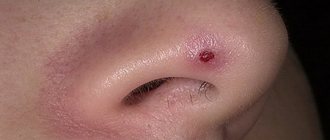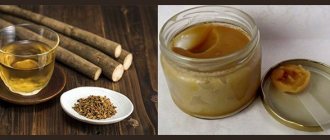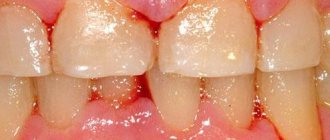Why do gums become inflamed?
Diseases of the soft tissues of the oral cavity are usually characterized by an inflammatory process. In such cases, it is necessary to contact the dentist so that the doctor can make the correct diagnosis.
So, the probable causes of swollen gums may be:
- Local infection. Pathogenic microbes multiply on the food substrate in the oral cavity, which provokes inflammation, suppuration, pain, and even premature loss of masticatory organs.
- Improper hygiene care. Brushing teeth with too hard a brush or using aggressive whitening agents leads to mechanical or chemical damage to the gums.
- Severe vitamin C deficiency causes scurvy, which is characterized by blue discoloration and inflammation of the gums. If left untreated, the preconditions are created for tissue infection and the appearance of ulcers.
- Teething. Inflammation in this case most often occurs in children. However, adults also suffer, because wisdom teeth erupt in adulthood.
- Complications after removal or prosthetics. Damage to soft tissue during surgical or orthopedic interventions does not go away without leaving a trace, resulting in a minor inflammation at best, and a serious disorder at worst.
And yet the problem is not always the teeth. In some cases, the root of the problem should be found in the spine or other parts of the body. In such a situation, you cannot do without a full examination.
Spinal diseases
It is through the neck that the blood supply to the ear, mouth and other organs of the head is carried out.
In clinical practice, there have even been cases of the development of myopia due to spasm of the visual muscles, which reflexively appeared due to tension in the intervertebral muscles.
Disorders in the cervical spine often provoke headaches, hearing loss and increased blood pressure. In addition, poor blood supply contributes to inflammation of the gums and various dermatitis in the nose and lips.
Note!
Therefore, it is necessary to periodically perform physical exercises to maintain the tone of the neck muscles.
Other causes of gum inflammation
Negative experiences and stress also cause gum swelling. This occurs due to an increase in the production of the hormone cortisol by the adrenal glands, a high concentration of which reduces the level of immune defense.
Scientists convincingly prove that gum inflammation occurs much more often in people who regularly experience increased emotional stress.
In addition, swelling of soft tissues in the oral cavity is promoted by a deficiency of flavonoids - plant substances involved in many body processes.
Note!
This is why it is so important to eat fruits, vegetables and berries regularly. Flavonoids are responsible for the color of plants, and apples, grapes, carrots will help compensate for their deficiency - any bright fruit will do.
As can be seen from the list of possible causes of pathology, gum inflammation is preceded by many factors. But not every person attaches importance to the little things, relying on the body’s natural defenses.
When you have to deal with a disease after its occurrence, the patient grabs his head and runs to private doctors and public hospitals. Is it possible to cope with the disease on your own?
What to do if you have gum swelling at home?
First of all, you must immediately begin to act and take treatment measures, because an advanced disease is much more difficult to cope with.
Let's talk in more detail about what exactly needs to be done and what means to use to improve the condition and speed up recovery.
Recognition of pathology
The source of tooth infection is caries. Over time, the infection spreads to the gums, resulting in swelling and pus accumulating inside. Pus can reach the bone and cause osteomyelitis and phlegmon. Treating gum tumors at home will help prevent such sad developments.
The first signs of a tumor are discomfort, pain, fever. If the abscess is not opened in time, the symptoms will intensify. The pain does not go away at all for a minute. At the first signs, you need to start competent treatment.
My gums are swollen, what should I do? Folk remedies
Of course, before starting treatment, it is better to consult a dentist. The doctor’s knowledge and experience will be useful in finding out the root cause of the disease, and making a correct diagnosis is half the battle.
But it is not always possible to find time and a suitable doctor, so you often have to resolve the issue on your own. Folk remedies for swollen gums abound in various recipes, among which everyone will choose a healthy and tasty option.
Vegetable oils
This is useful!
It turns out that it is advisable to use oils not only in cooking, but also in medicine. By enveloping the affected areas, these plant products block air access for pathogenic microorganisms and cause their death.
In addition, beneficial compounds have a healing effect on soft tissues. Olive and fir oils are excellent remedies for sore gums.
Olive oil is applied to a soft toothbrush and rubbed in smoothly. If the swelling gives off pain under mechanical influence, then you can simply rinse the mouth.
Gently wipe the gums with fir oil using a cotton swab. But you can also moisten a piece of gauze or bandage and apply it to the swollen area. Having chosen one remedy, the treatment procedure is performed every morning for 10 minutes until complete relief from the disease.
Soda solution with iodine
What to do in case of gum swelling at home, especially when the situation has already gone too far and suppuration and severe pain have appeared?
In this case, a solution of soda with added iodine will help. I present to your attention a folk remedy for swollen gums, tested by my own experience.
I had such a case: I bought an advertised toothpaste, but it turned out to be of poor quality and it caused my gums to become very inflamed and suppurate. It was this remedy that saved me – baking soda with iodine.
Preparation:
- Let's boil water, we need one glass of water.
- Remove the water from the stove and cool slightly, not too much, the water should be hot.
- Add a teaspoon of soda and four to five drops of iodine to the water. Mix well.
Application:
- We take the resulting solution into the mouth and hold it on the side of the sore gum for a minute, then we spit it out and take a new portion and repeat this until the solution in the glass is finished.
- We carry out such procedures every hour during the day, each time preparing a fresh solution of soda with iodine.
- This simple procedure will help very quickly and will begin to draw out pus from the inflamed gums. The swelling will subside and the pain will subside.
It is recommended, for preventive purposes, to do such rinses for two to three days.
Calendula
The high content of flavonoids and carotenoids in calendula flowers has found a response in folk medicine. Pharmaceutical companies produce an alcohol tincture from this plant, which can be purchased at any pharmacy.
Calendula, first of all, destroys pathogenic microorganisms, but it is also used against non-healing wounds and fistulas, for rinsing with sore throat and stomatitis.
The recipe is as follows:
- Dilute the alcohol tincture with water in a ratio of 1:10.
- Rinse the mouth 2-3 times a day.
- After the procedure, it is forbidden to eat food for 1 hour.
Cabbage pickle
In the process of preparing sauerkraut, a very useful brine is formed. The liquid is used orally for various digestive disorders (gastritis, pancreatitis, etc.).
To relieve inflammation from the gums, it is necessary to regularly treat them with this product by rinsing. In addition, cabbage brine eliminates the looseness of the soft tissues of the oral cavity, which significantly reduces the likelihood of microorganisms penetrating into the deep layers of the gums.
Aloe vera for gum swelling
Many housewives grow agave at home. Aloe contains a large amount of natural antioxidants and vitamins that help get rid of various ailments.
This is useful!
The plant has proven itself as an anti-inflammatory remedy for a runny nose, but it is also suitable for treating swollen gums. For this purpose, cut off an aloe leaf and wipe the affected area with the pulp three times a day.
Lemon for gum swelling
What to do if you have gum swelling due to a lack of vitamin C? We need to replenish its balance! And the best way to do this is with lemon oil, which has a very high ascorbic acid content.
The drug is prepared and used according to the following scheme:
- Grind fresh lemon peel.
- Place in a small saucepan.
- Pour in vegetable oil (olive or sunflower) so that the liquid completely covers the lemon.
- Simmer for 5 minutes in a water bath.
- Leave for 3 days.
- Lubricate the gums three times a day after meals.
St. John's wort infusion
The anti-inflammatory effect of St. John's wort has been known for a long time. It is used in many complex recipes, but to combat swollen gums, the herb is allowed not to be mixed:
- St. John's wort is dried and crushed.
- Pour 1 tablespoon of raw material with 1 glass of boiling water.
- Leave for 1 hour.
- Strain.
- Rinse the mouth three times a day in small portions (1 glass is the daily dose).
Salt and honey
Even small children have honey rubbed into their gums when their teeth are cutting. Of course, doctors are categorically against this approach, because you can give your child allergies for the rest of his life.
And if it’s better to give the baby something to chew on when teething, then the following recipe will help an adult with gum inflammation:
- Take 1 tablespoon of liquid honey.
- Dissolve a pinch of table salt in it.
- Rub the mixture into the affected areas daily using your fingers or a soft toothbrush.
Melissa infusion for gum inflammation
This medicinal plant has been used in medicine for over two thousand years. Melissa is mainly used as an antimicrobial, antihistamine, sedative and antispasmodic.
It contains flavonoids, essential oils and other complex compounds. The following recipe is suitable for swollen gums:
- Dry and grind the lemon balm herb.
- Pour 2 tablespoons of chopped herbs with 1 cup of boiling water.
- Leave for 4 hours.
- Strain.
- Rinse your mouth 3 times a day.
- Although there will be an improvement on the second day, the course of treatment should last 1 week.
Sorrel
Probably many people love green borscht with sorrel. This plant can also be used for medicinal purposes:
- Grind fresh sorrel leaves.
- Squeeze out the juice.
- The resulting liquid is mixed with water in a 1:1 ratio.
- Rinse your mouth daily.
Plantain juice
The first remedy for superficial wounds in folk medicine is plantain. It is applied to the damaged area to prevent the development of a hematoma.
In the case of swollen gums, you will need plantain juice:
- Grind the leaves in a blender or by hand.
- The juice is squeezed out of the pulp.
- Apply liquid to inflamed gums.
Camomile tea
You can’t ignore such a natural antiseptic as chamomile. Even representatives of official medicine agree with the plant’s amazing ability to relieve inflammation. For example, when wearing removable dentures, small ulcers and swellings often form.
Even a single rinse will give a result that not every drug can achieve so quickly. If inflammation on the gums lasts for a long period of time, then more frequent use of the herb may be required:
- Take 1 tablespoon of chamomile.
- Pour it with 1 glass of boiling water.
- Leave covered for 30 minutes.
- We filter.
- We rinse our mouth three times a day (1 glass is a single serving).
Complex herbal collection
Although simple recipes can cope with swollen gums, sometimes it is advisable to use a complex mixture based on the following plants:
- St. John's wort;
- sage;
- chamomile;
- Oak bark;
- calendula;
- yarrow.
Each of these components has a pronounced antiseptic property. To prepare the drug, you must follow the following instructions:
- Grind and mix the ingredients in equal proportions.
- Pour 1 tablespoon of raw material into 1 glass of cold water.
- Bring to a boil and simmer for 2-3 minutes.
- Cool and strain.
- Rinse your mouth 3-4 times a day.
- A fresh decoction is prepared every morning.
Horseradish
The antimicrobial power of horseradish is due to the fact that it contains the protein lysozyme, a natural bactericidal agent.
The essential oil of the plant has a distinct odor, so not every person will like to use it. However, in Rus', horseradish has been used for a long time to treat toothache.
For inflammation of the gums, the following recipe is suitable:
- I chop 1 medium-sized horseradish root.
- Squeeze out the juice.
- Dilute the liquid in 1 glass of water - daily dose.
- Rinse your mouth 3-4 times a day.
Salo
Many people know that applying lard to swollen gums can relieve pain. This remedy will help one person, not another.
It all depends on the cause of the disease, which only a dentist can determine.
In any case, you should know: the lard must be taken unsalted, and it must be applied for at least 2 hours.
Cucumber juice
If your gums are sore, swollen and inflamed, then drinking cucumber juice is very useful. It will also help cope with swelling.
Banana peel and sea salt ointment
Not every medicine is suitable for pregnant women. However, there is one proven recipe that will relieve both gum inflammation and bleeding:
- Grind 3 tablespoons of sea salt in a coffee grinder.
- Dried banana peel is crushed in the same way
- Add 2 teaspoons of banana powder to the salt.
- Pour in a little olive oil until you get a creamy consistency.
The ointment is rubbed into damaged gums. It may even taste unpleasant, but you shouldn’t spit it right away: you need to wait at least 10 minutes. You should rinse your mouth with water after half an hour, and the procedure itself is performed twice a day.
Grandma's recipes
There are other recipes that will help relieve swelling of the gums and cheeks at home.
- Horseradish. Take the fresh root of this plant, chop it (you can grate it or use a meat grinder) and squeeze out the juice. Dilute with water in an approximate ratio of 1:1 and rinse your mouth 3-4 times a day. Be careful, as horseradish juice in excess can burn the mucous membrane.
- Soda-iodine solution. Dilute a teaspoon of baking soda in a glass of water, add a few drops of iodine. Helps well with minor swelling and inflammation.
- Propolis. Soak a cotton swab in alcohol tincture of propolis and apply to the affected areas several times a day.
- Sometimes a small unsalted piece of lard can help - it also needs to be applied to the inflamed area.
- Sea buckthorn oil. Soak a tourniquet or cotton wool in the product and apply it to the sore gum. Best done at night.
Some grandmothers recommend tying garlic to your hand for gum swelling, but such methods are most likely ineffective. It is best to consult a dentist rather than prolong the disease.
Swelling of the gums and cheeks can be a serious symptom and should not be ignored.
We invite you to familiarize yourself with Dental treatment under sedation
If it is not possible to see a doctor urgently, you can use these folk remedies, but if the situation does not improve, go to the clinic.
Prevention of gum inflammation
One of the first signs of soft tissue inflammation in the oral cavity is a bad odor. The pockets that form in the cervical area often become a place for the accumulation of food debris, the rotting of which spoils the breath. In addition, microorganisms find refuge here. For them, food is a tasty morsel. And if the situation is not normalized in a timely manner, complications cannot be avoided.
Prevention of gum inflammation should be performed constantly, and not just once a week or month. Of course, a strong immune system will stop a bacterial attack, but the body’s defenses also fail.
Note!
To avoid an unexpected illness, you need to make it a rule: visit the dentist once every six months. The doctor will examine even the most remote areas in the oral cavity using special instruments. Yes, and it will remove tartar that forms in the cervical pockets.
Disruption of the salivary glands also provokes the development of diseases. This is due to the fact that saliva is alkaline in nature, and in the oral cavity, a decrease in pH levels often results in an increased effect of acids on hard and soft tissues. If you rinse your mouth with a salt solution (1 teaspoon per 1 glass of water) after each meal, you will be able to avoid many pathologies.
Causes
Multiple external and internal factors can provoke swelling of the gum tissue. Often this pathological condition is usually not associated with dental diseases. The problem will only affect soft tissues.
Patients often complain to the dentist about the same symptom, when the gums are swollen, but the teeth do not hurt. The inflammatory process can most often be triggered by pathogenic bacteria or infection.
The main reasons why gum swelling occurs include the following:
- Failure to comply with or regularly perform hygienic procedures for caring for the oral cavity. This is especially true for the inner surface of teeth. Against the background of inadequate hygiene, a large number of pathogenic microorganisms accumulate.
- Stomatitis. Swelling of the gums may be accompanied by the formation of ulcers. If you take timely measures to eliminate the disease, the symptoms quickly go away.
- Poor quality fixation of fillings, veneers or crowns. If the sharp edges of the orthodontic product are not sharpened, the mucous membrane is frequently injured, which leads to inflammation of the gingival tissue around the tooth.
- Removal of a dental unit. There may be no blood clot at the site of the extracted tooth, which is necessary to facilitate healing of the hole. In addition, the dentist could have done the work carelessly and touched soft tissues.
- Treatment. If the teeth are in a state of disrepair, then more than one visit to the dental office may be required, as well as many medical procedures. Inadvertently, the doctor may make an extra incision, which, after installing a temporary filling, can lead to swelling. We must not forget about possible allergies to medications and anesthetics, which can also cause swelling.
- Injuries or burns. This is the most common cause of flux, since even a minor crack can cause infection.
- Malocclusion and wearing braces.
- Pathologies of the respiratory tract. For example, with a sore throat, the gums can also be affected by the infectious process.
- Herpes type gingivitis In this case, the tumor will also be accompanied by the appearance of inflamed vesicles.
- Decreased immune system of the body.
- Hepatitis and AIDS.
- Poor nutrition. Lack of vitamins, which are necessary for the normal functioning of the body, leads to decreased immunity and disruption of biological processes.
Juices for healthy teeth and gums
Fresh natural juices are an excellent means of preventing inflammation of the gums and diseases of the circulatory system. It is recommended to drink one glass of berry or fruit juices every day. The choice of drink depends on your taste preferences.
This is useful!
Juices saturate the body with vitamins, help get rid of harmful toxins and substances, and stimulate metabolic processes in the body.
What juices are good for dental health?
- Unclarified apple juice has a beneficial effect on the human circulatory system, this makes the gums strong and healthy, and prevents periodontal disease. Apple juice is also good for diseases of the kidneys, liver, and bladder. Removes accumulated toxins and waste from the body, cleanses the intestines and improves metabolism. It is recommended to drink as much natural apple juice without sugar as possible.
- Grape juice is rich in B vitamins and antioxidants. It is very useful for the cardiovascular system, joint health, destroys cancer cells and strengthens the body's immunity. A glass of grape juice a day will allow you to maintain youthful skin, beautiful hair, strong nails, teeth and healthy gums.
- Our grandmothers knew that cherry juice is good for drinking to maintain healthy teeth. The vitamins and minerals contained in cherry juice strengthen gums and fight bad breath. In addition, this drink maintains normal hemoglobin levels in the blood, has a beneficial effect on eye health and vision, and fights harmful bacteria in the mouth and body.
- Pomegranate juice – contains a lot of magnesium, potassium, iron, calcium, phosphorus, antioxidants and many vitamins. Pomegranate juice is good for gums and is recommended for anyone who wants to have strong white teeth. This drink has a beneficial effect on blood vessels and heart function, strengthens hair and nails, and makes the skin young and beautiful.
- Cherry juice helps maintain healthy teeth and gums. Cherry juice is also recommended for those who suffer from diabetes to saturate the body with vitamins and nutrients. This wonderful drink has a beneficial effect on intestinal function and the digestion process, and also saves the skin from the appearance of wrinkles.
Dentists recommend that their patients mix natural juices with kefir in equal proportions and prepare a vitamin drink - yogurt.
Eating such yogurt will help the calcium contained in kefir to be absorbed much better, and the juices will bring more benefits to dental health, which is also very important for improving the health of the oral cavity and strengthening the gums.
Include this drink in your diet for the entire summer season and you will definitely see positive results.
Causes and treatment of swollen gums at home
There are enough reasons why a person’s gums suddenly swell. This can be caused by the appearance of baby teeth in a child and wisdom teeth in an adult, previous injuries, tooth extraction, improper treatment, or the presence of infectious diseases of the oral cavity.
There are many other reasons why gums swell. At the same time, when the gums hurt in a child or an adult, the temperature may rise to 38 degrees or more, low-grade fever may appear, itching may be felt, redness may occur, and other symptoms may occur.
When you feel the first symptoms, you must make an appointment at a dental clinic for treatment, because if your gums are swollen, this may be an indicator that your mouth is affected by gingivitis, gumboil, and other signs of infections that can lead to serious consequences.
Prevention with food
Doctors advise including natural vegetables and fruits in your daily diet; this will help prevent gum disease and tumors and improve the health of the body.
This is useful!
Eat more durum apples, carrots, currants, gooseberries, and cabbage. The chewing process is very beneficial for the health of the oral cavity - it trains the chewing muscles, gives the necessary load to the tissues, naturally massages the gums and causes blood flow to them.
Wax
It is very useful to chew honey in honeycombs; it cleans teeth well of plaque containing harmful bacteria and strengthens gums.
Garlic
To prevent gum swelling and strengthen teeth, it is recommended to chew a clove of garlic for several minutes every day, chewing it into a paste.
To eliminate the smell of garlic, you need to chew a walnut or parsley after the procedure. You can drink a glass of hot milk.
Why is gum swelling dangerous?
Swollen gums are not a harmless phenomenon that can be ignored. Sometimes it is the first sign of serious intoxication of the body, an increasing allergic reaction or other life-threatening conditions. If the swelling is accompanied by a high fever, difficulty swallowing or breathing, numbness in the face, or other similar symptoms, you should seek medical help immediately. The help of a specialist is also necessary in cases where the swelling rapidly increases and affects not only the gums, but also the cheek, eye or neck.
It is not recommended to postpone a visit to the dentist even in the absence of health-threatening symptoms. Advanced inflammation due to gingivitis or periodontitis can cause the loss of one or more teeth. And untreated carious cavities can lead to diseases of the throat, nasopharynx and heart.
It is not recommended to postpone a visit to the dentist if your gums are swollen.
Important! There are many blood vessels and nerve endings running through the face and neck. Therefore, any pathological process occurring in this area can quickly spread through the bloodstream. The result of infection is disruption of the functioning of internal organs, and in severe cases, sepsis.
Regular teeth cleaning
In addition, you need to acquire a new habit, if you still don’t have one: brush your teeth morning and evening. This approach will leave no chance for pathogens.
However, it is recommended to put aside the toothpaste once a week and use the following recipe:
- Take ½ teaspoon of baking soda.
- Add a couple of drops of lemon juice and 10 drops of hydrogen peroxide.
- Mix thoroughly.
- Brush your teeth for 3-4 minutes.
After this procedure, you are allowed to eat food only after 1 hour. And you shouldn’t overdo it with these ingredients: despite the whitening and anti-inflammatory effects, the enamel is still erased, and it takes time to restore it.
Yogi toothpaste
This prophylactic is prepared on the basis of regular vegetable oil with the addition of sea salt. Natural toothpaste is useful for preventing gum inflammation and tartar formation.
Preparation:
- Take a tablespoon of good quality olive oil (you can take sunflower oil) and dissolve a small pinch of sea salt in it.
- Mix everything well. The healing paste is ready.
Application:
- We massage the gums with the resulting mixture twice a day.
- Using a soft brush or index and middle fingers, clean the oral cavity with light massage movements, starting from the gums to the tips of the teeth.
- We perform a preventive massage for two minutes, on the inside and outside of the teeth.
Sea salt prevents the formation of plaque and tartar and kills pathogenic bacteria.
Medications
Pharmacy products can also help relieve swelling, but only a doctor should prescribe them. You can only purchase special infusions and mouth rinses that have anti-inflammatory and antiseptic effects on your own.
If gingivitis or periodontitis is diagnosed, problems appeared after tooth extraction, then the drug Chlorhexidine may be prescribed. This is a local antiseptic that should be used to rinse the mouth when swelling occurs. Metrogyl Denta gum gel is also effective. It is convenient and simple to use - you just need to apply a small amount of product to the affected area. This product should not be used for a long time, as dysbacteriosis may appear. Cholisal gel is also used in the treatment of periodontitis. The medicine should be applied several times a day.











